Who to pay for more expensive ‘invitations’ for migrants in Tatarstan
How employers circumvent state duties and other formalities when employing foreign workers
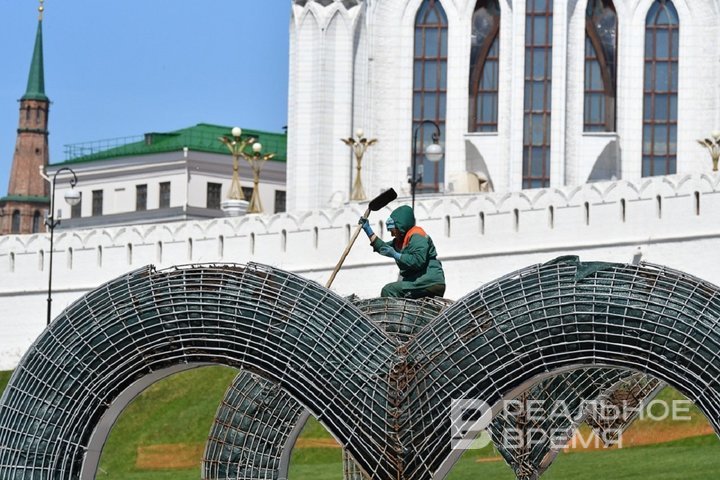
The Russian Ministry of Education and Science has released shocking figures: the number of migrants who failed to pass the mandatory Russian language exam has increased 10 times compared to last year. Besides, since July 1, the amount of the state fee for issuing permits for the recruitment and use of foreign workers has increased by 20%. Whether the influx of foreign specialists to Tatarstan will decrease as a result, how strict migration control measures are affecting the local labour market, and why in the capital of the republic it is increasingly possible to hear from invited workers “I don't understand” — read in the material of Realnoe Vremya.
“It's a drop in the ocean”
Since July, state duties for issuing work permits to migrants have increased in Russia from 3500 to 4200 rubles and for issuing permits to employers to attract and use foreign workers — from 10000 to 12000 rubles. The state fee amount for issuing an invitation to enter the Russian Federation has also changed — from 800 to 960 rubles for each invitee.
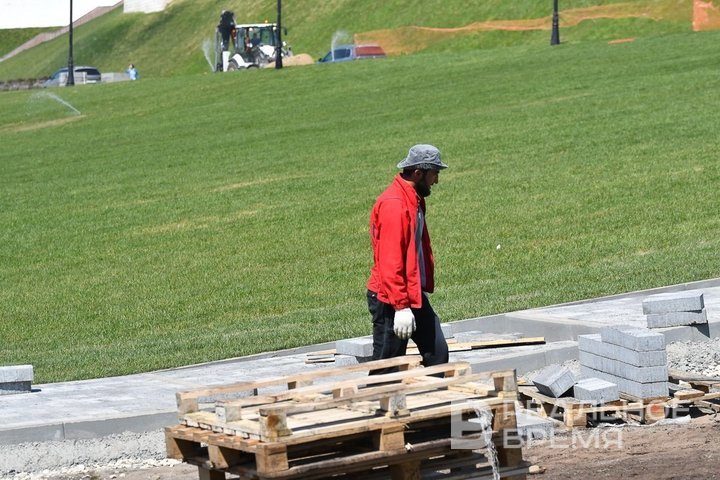
Since the shortage of labour in construction sites, transport and medicine is traditionally compensated by employers by attracting foreign specialists, the question arises as to how the rise in price will affect these industries.
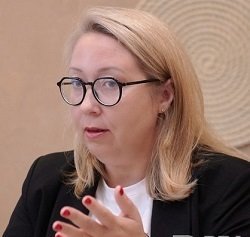
The real estate market expert noted that not only the increase in state duties, but also the tightening of requirements for migrants in general, which has been observed recently, has a negative impact on the construction industry, “because there are not enough workers”.
Nail Galeev, CEO of SMU-88 group of companies, in a conversation with Realnoe Vremya, pointed out that the recruitment of work crews is a matter for contractors, and SMU-88 only imposes general requirements on the qualifications, equipment and experience of contractors:
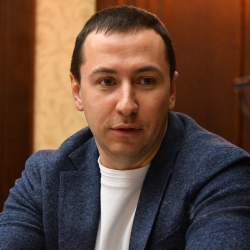
However, he noted that the increase in the state duty of 2 thousand rubles per employee involved, compared with the dynamics of price growth for basic types of work, is a “drop in the ocean”:
“For some items, for example, the cost has increased by 80-90 percent in six months. And here the difference is that the state duty is a fixed one-time payment, and the cost of work depends on the amount of work performed.”
“Permission is not required, a patent is enough”
Kazan Metroelectrotrans, where at the end of May only 398 drivers worked instead of the required 605 and 37% of them were migrants, told Realnoe Vremya that the issue of changing the amount of state duty was irrelevant for this organisation:
“We do not apply for work permits, our employees do not need it.”
Indeed, the company uses a different, quite working tactic of attracting foreign labour resources: foreign employees of Metroelectrotrans, going home on vacation, successfully “recruit” fellow countrymen, and each driver who comes to Kazan independently and at their own expense issues a patent granting the right to work in Tatarstan.
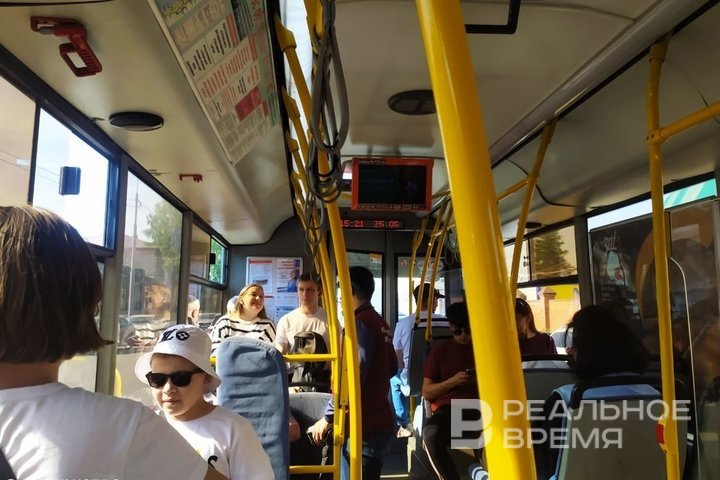
Thus, the cost of paying state duty will increase only for foreigners themselves who want to drive public transport in Kazan: they will have to pay 4200 rubles instead of 3500 rubles for issuing a work permit, as before.
The issue of attracting foreign labour to the utilities services of Tatarstan is being resolved similarly.
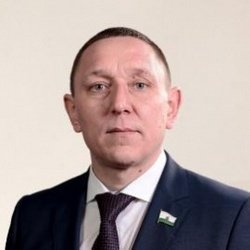
Besides, he noted, now it is though visitors from neighboring states but already citizens of Russia who work in contracting organisations: many have managed not only to gain a foothold here, but also to go through all the stages of naturalisation.
Migrants are reviving the health care of the republic
“Qualified specialists who came to Russia from abroad successfully work in Tatarstan healthcare institutions," the press service of the Ministry of Healthcare of the Republic of Tatarstan told Realnoe Vremya. “Mostly from Kyrgyzstan. In Sarmanovo, through the efforts of a foreign specialist — deputy chief physician of the district hospital Urmat Turdogozhoev, it was possible to revive the surgical service. There are also positive examples in Zelenodolsk and Nizhnekamsk districts of the republic.”
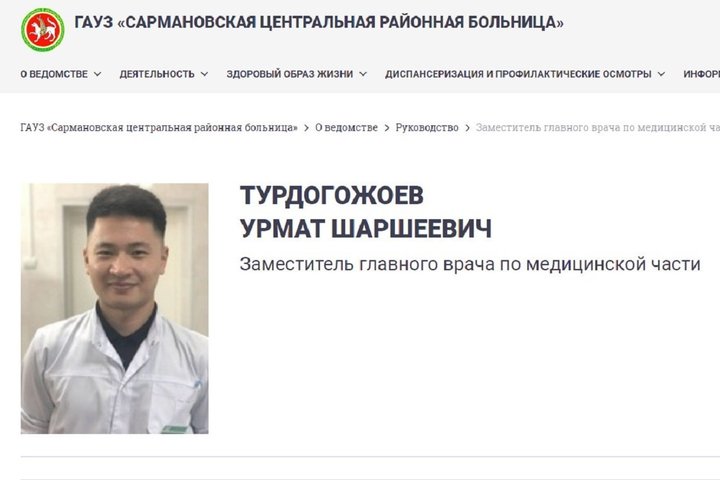
However, the Ministry of Healthcare clarified that all these medical workers were naturalised before being employed in medical institutions and received a Russian-style diploma, confirmed by the Federal Service For Surveillance in Healthcare. There were no cases when foreign doctors had to be invited and pay the state fee.
Fewer migrants, more violations
According to Tatarstan Statistics, in January — March 2024, the number of arrivals of foreigners to the republic decreased by 21.2% compared to the same period in 2023 — from 2786 people in 2023 to 2196 in 2024. During this time, 1357 people left the republic in 2024, and 1,359 in the past, that is, the outflow has practically not changed. The migration flow to the republic in January — March 2024 fell by 37.1% compared to January — February 2023. There is a tendency to accelerate the decline: in January — February 2024, it amounted to 34.6%.
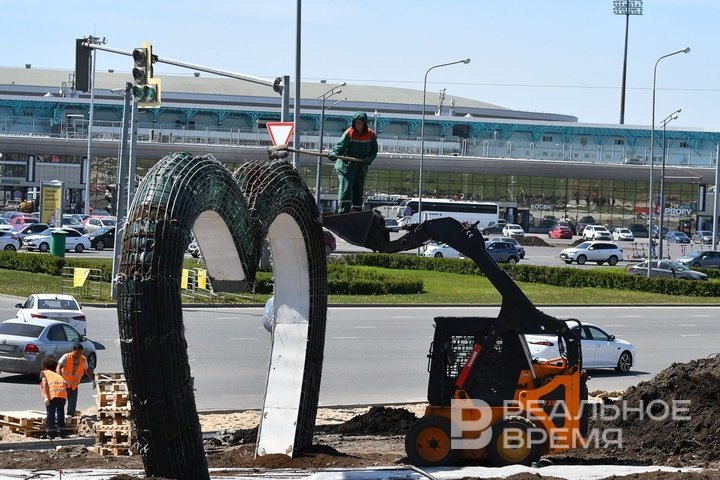
According to the Ministry of Internal Affairs of the Republic of Tatarstan, in January-April 2024, in order to counter illegal migration and illegal labour activities of foreign citizens and stateless persons, the police conducted 3658 preventive measures, compiled 7576 administrative protocols against violators of migration legislation, and 8 decisions on deportation were made in relation to 1098 foreign citizens on the territory of Russia for malicious violation of the stay regime and conditions of participation in labour Judicial decisions on expulsion from the Russian Federation.
In the four months of 2024, 12.6 times more administrative protocols were drawn up against violators of migration legislation than in January-September 2023 (602), and 36 times more than in 2022 (211).
Language as an obstacle
The influx of migrants to Russia may be further reduced due to the harsh measures taken after a high-profile criminal case was opened on the illegal issuance of certificates of knowledge of the Russian language by employees of the Moscow Pushkin Institute. In April 2024, 12 universities authorised to conduct such testing, by order of the head of the Ministry of Education and Science of the Russian Federation Valery Falkov, terminated all contracts with partners — private organisations where migrants successfully “passed” the mandatory exam, which gave the right to work and live in the Russian Federation.
As a result, in the first five months of 2024, the number of foreigners who did not pass the exam increased sharply — from 3% to 30%.
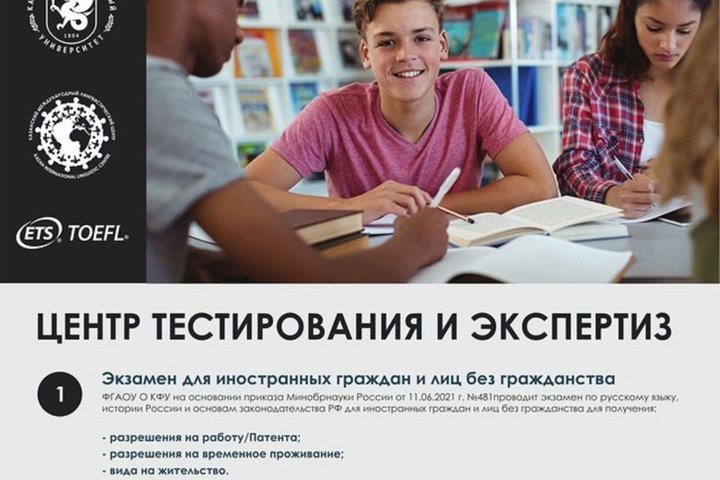
Just a few days ago, the head of the Federal Service for Supervision in Education and Science (Rosobrnadzor), Anzor Muzaev, proposed to tighten control over taking the exam by migrants — to introduce video recording of the entire procedure for its conduct, demonstration (on video) of completed checklists at the beginning and end of the exam, tasks to determine writing skills and mandatory verification of the ability to speak Russian, as well as to raise the minimum threshold for successful passing the exam. If these proposals are accepted, the percentage of exam failures is likely to increase.
In Tatarstan, the exam for knowledge of the Russian language is now conducted only in one institution — in the KFU. Realnoe Vremya asked the university how many foreigners applied and how many successfully passed this exam in 2024, and how many in 2023. We also asked you to tell us how the exam process is organised and whether there is an increase or decrease in the flow of people who want to take the test. The response will be published upon receipt.
Kazan loophole for illegal migration
Russian language proficiency certificates are being investigated in Kazan in an atmosphere of secrecy in connection with the illegal issuance of certificates of knowledge of the Russian language against employees of local Femida-K PLC, which could, in case of publicity, become no less scandalous than the case of the illegal issuance of certificates of knowledge of the Russian language by employees of the Moscow Pushkin Institute. At the end of March, employees of Femida-K company, which advertised its services for migration and legal assistance to foreign citizens in Tatarstan, were detained in Kazan.
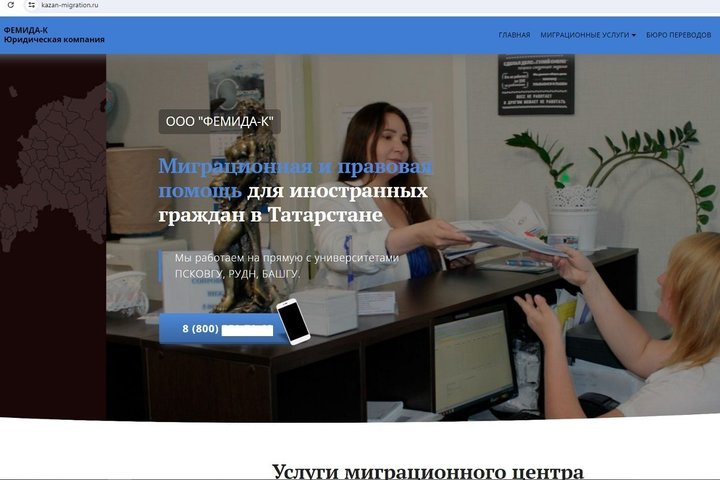
According to the press service of the Novo-Savinovsky Court of Kazan, director of Femida-K PLC Marina Votyakova and her deputy Vilena Chikizova were placed under house arrest due to that the Investigative Committee opened a criminal case on the commission of a serious crime — organising illegal entry into the Russian Federation of foreign citizens or stateless persons their citizenship, their illegal stay in the Russian Federation, committed by a group of persons by prior agreement or an organised group — so far in relation to unidentified persons.
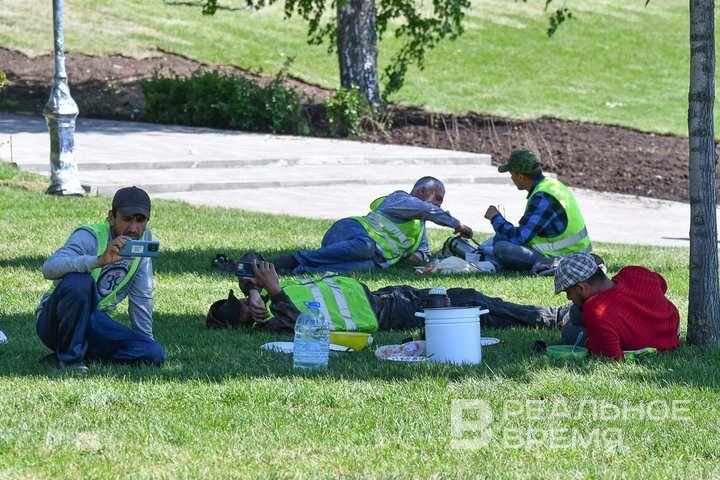
According to unconfirmed reports published earlier in the media, it may be a question of falsification of 250 to 2000 exam results for foreigners' knowledge of the Russian language and the history of Russia. A month ago, the Investigative Committee, without explaining the reasons, refused to respond to a request from Realnoe Vremya about the circumstances of this criminal case and the scale of the alleged violations. The editorial office has sent a repeated request, and upon receipt the response will be published.